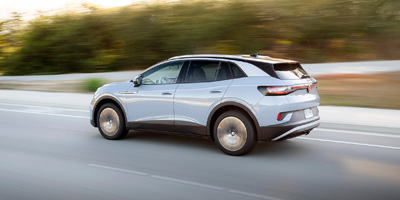Republican Florida State Sen. Jonathon Martin believes the state should not allow electric cars to evacuate during a hurricane. His reasoning is based in part on misinformation already debunked when others have made similar suggestions in the past.
According to a recent article published by Electrek, Martin, of Fort Myers, serves on the Florida Senate's Committee on Environment and Natural Resources and the Select Committee on Resiliency. He reportedly asked the state's Department of Transportation to consider banning EV evacuations, since the cars could run out of charge and get stranded, thereby blocking other (gas-powered) traffic from evacuating.
During some recent storms in the Midwest, people posted similar suggestions on social media with claims that a bunch of EVs were expected to end up stranded in the snow while gas car owners made it safely home. However, the opposite proved true in at least some cases.
EV owners made it home and plugged in or sat warm in their cars on the side of the road while gas cars ran out of fuel and some gas stations had long lines, were offline or out of fuel. EVs also aren't impacted by flooding nearly to the level of gas cars, which can be quickly rendered inoperable if they take in water.
The lawmaker's fear here is public EV charging infrastructure is limited, and if the power goes out, electric cars won't be able to charge. However, when the power is out, gas stations are typically closed, and gas car owners don't have gas pumps in their garages at home.
EVs can charge at home or in another area that has power, and can be charged with a gas generator. Since these future powertrains are much more efficient than gas engines, the "full tank" stands to last longer, especially when the vehicle is "idling" in evacuation traffic or sitting on the side of the road "running."
To be clear, EVs don't idle, and they don't really run like a gas car when they're not moving. Instead, they remain quiet and emissions-free while using as little energy as possible to keep the electronics and climate control working. A gas car would need to be running the whole time, cranking out exhaust fumes, and likely using much more gas in the stop-and-go traffic than at speed.
While many EV owners tend to have some range anxiety and pay close attention to things like range, charging time, efficiency, etc., this isn't necessarily true of gas car owners. Since gas stations are plentiful and gas car owners don't tend to have range anxiety, it wouldn't be uncommon for them to set out on the road with a small amount of gas. There's really no immediate need to pull into a gas station and "top up" every day. However, many EV owners wake to a fully charged car every morning.
"With a couple of guys behind you, you can’t get out of the car and push it to the side of the road," Martin said, according to the Tampa Bay Times. "Traffic backs up. And what might look like a two-hour trip might turn into an eight-hour trip once you’re on the road.
"My concern is there’s not an infrastructure currently available in the state of Florida for the amount of EVs that might be used to evacuate, on evacuation routes, during a time of emergency."
Florida Department of Transportation Executive Director of Transportation Technologies Trey Tillander didn't seem to agree with Martin's suggested ban. He noted lawmakers are looking into portable EV chargers. He also said it's the state's responsibility to offer the same level of assistance to electric cars as it does for gas cars.
"So, if an electrical vehicle runs out of charge, there are technologies," Tillander said. "We have our Road Rangers. We have our emergency assistance vehicles that we deploy during a hurricane evacuation that have gas."
To restrict a Florida resident from getting out of harm's way based on the type of car they drive would arguably be outright crazy. Moreover, to help owners of stalled gas cars while leaving EVs behind would be just as insane.
More charging infrastructure is coming via the Biden administration's efforts, as well as progress by many related companies. In the meantime, most EV owners are enjoying charging at home and not having to worry about dealing with gas stations, especially those that may be lined up or out of fuel during an emergency that requires evacuation.













